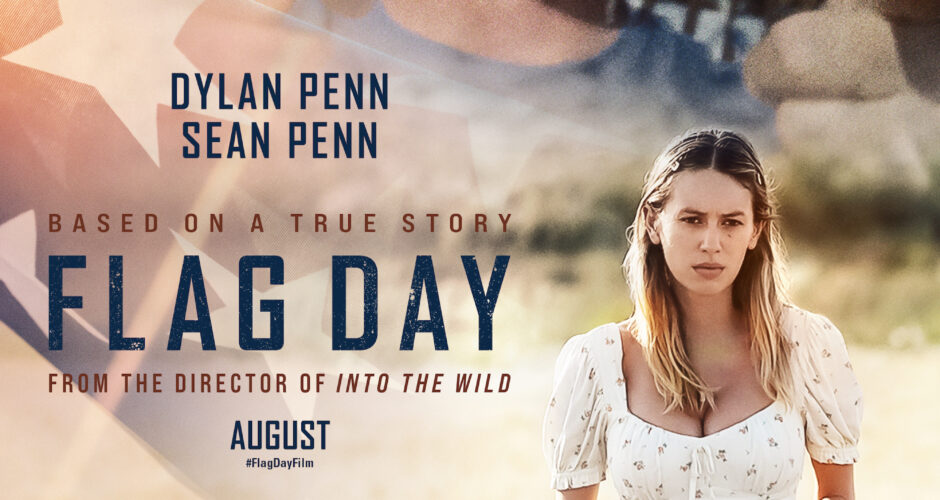
One can only imagine how intense it must have been for fledgling actress Dylan Penn to be directed by — and play her first leading role opposite — her father, the phenomenally gifted and famously mercurial actor/director Sean Penn. She proves more than up to the task. As Jennifer Vogel, she rides a roller coaster of highs and lows without ever overplaying the emotion: the unwavering love and fierce loyalty, the anger, disappointment and grief. Her father, John Vogel, made promises he never kept, spun grandiose plans he never saw through, and disappeared for months at a time before suddenly “showing up when he hungered for affirmation,” as Jennifer recounts in voice-over.
The words come directly from the memoir that Jennifer wrote about her father, Flim-Flam Man: The True Story of my Father’s Counterfeit Life. Like the 2004 book, the movie is told through Jennifer’s eyes. John (Sean Penn) was a con man, a bank robber, arsonist, forger, and compulsive liar who was pursued by both local and federal authorities for a long list of criminal activities. Jennifer describes him as “a man who was ashamed of his failures,” but who couldn’t tell the truth to save his soul. He clung to his delusions. His daughter did, too, for a while but, as she matured, there was no sugarcoating the truth. Her alcoholic mother (Katheryn Winnick) presented an equally unreliable role model.
The movie opens in 1992, as dozens of flashing police cars are bearing down on a speeding vehicle in the Minnesota countryside. A young woman’s voice begins speaking over the scene, explaining what we need to know about the unfolding story. The action then shifts to the summer of 1975 when Jennifer was six years old, living with her parents and four-year old brother Nick (played as a young man by real-life sibling, Hopper Jack Penn). Two younger sets of actors are used in the earlier years. Penn coaxes impressive performances from all four: Addison Tymec and Cole Flynn when they are little kids; Jadyn Rylee and Beckam Crawford when a bit older.
After a period of open rebellion – drugs, booze and a goth lifestyle – Jennifer found salvation through writing and journalism. She attended the University of Minnesota and worked for several newspapers, all the while trying to reform her father. But the demons inside him always proved stronger. She tells the story with eyes wide open; that she managed to retain her love for this deeply flawed and troubled man is the real wonder of this story.
Dylan Penn’s performance feels effortless and completely authentic. This is especially notable in the many close-ups of her face in repose. Sean’s directing choices are solid throughout: intense close-ups, low angles peering through the grass, silhouettes of characters against a burnished sky, a mythical feel for nature. He seems to be channeling Terrence Malick at times: opting for a visual beauty that would seem to be at odds with the poverty, dashed dreams and pain playing out on-screen but, as in Days of Heaven, the spectacular beauty both contrasts and supports the poetic feeling. Flag Day is the best film Penn has directed since 2007’s Into the Wild and it’s the first time he has served as both director and actor. As usual, he nails his character and the man’s many contradictions: the genuine love he feels for his children, the self-destruction that propels him, and the regrets he can’t bring himself to acknowledge.
The viewer walks away with equal admiration for the real Jennifer Vogel who, against all odds, found it within herself not to end up like her feckless father or alcoholic mother. It must seem surreal for Vogel to see her 2004 memoir turned into a movie so many years later. She couldn’t have entrusted her story to a more talented or worthy team of artists.
